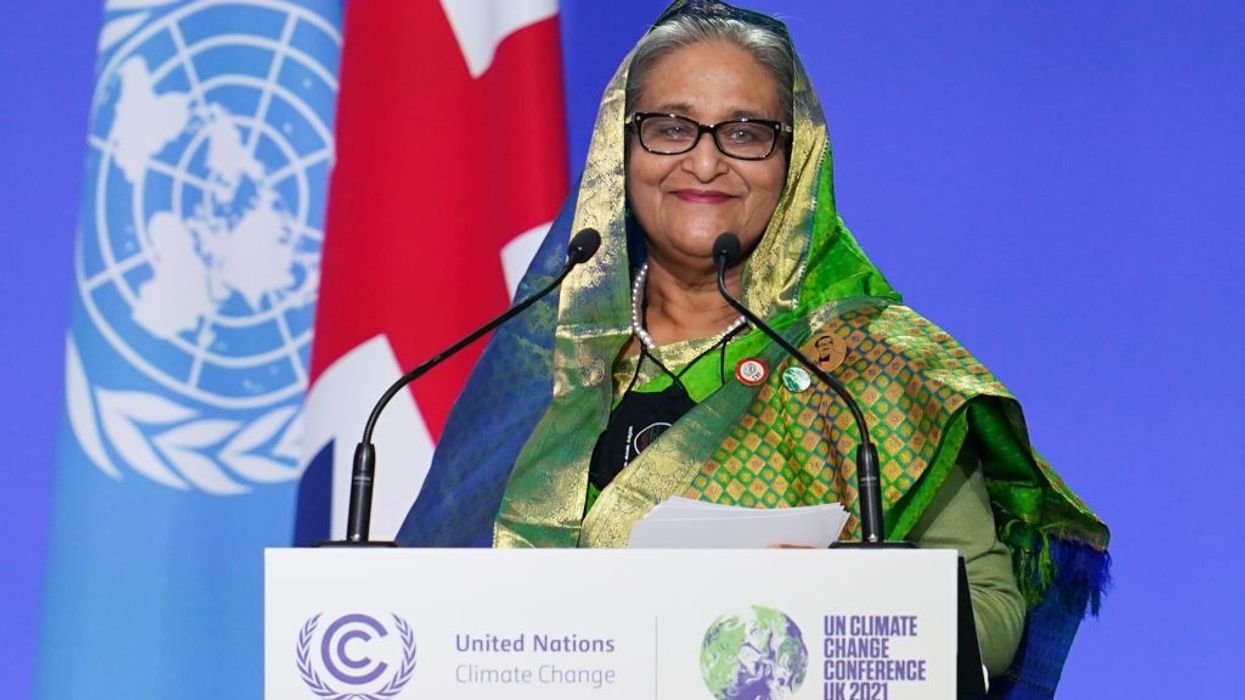BANGLADESH prime minister Sheikh Hasina has called upon major emitting countries to fulfil their obligations to support vulnerable nations in their efforts to cope with the effects of climate change.
Addressing the Commonwealth and Climate Vulnerable Forum (CVF) leaders at the COP26 Summit in Glasgow on Monday (1), Hasina urged the international community to recognise “our vulnerability and necessity for adequate climate finance and technology transfer”.
The CVF is a partnership of 48 of the world’s most climatically-vulnerable countries that represent 1.2 billion people, but contribute only five per cent of total global emissions.
A third of the CVF countries are from the Commonwealth.
Hasina stressed the importance of the transfer of clean and green technology to developing countries at affordable costs, including for meeting energy requirements.
“At the same time, the development needs of the CVF and the Commonwealth members will have to be taken into account”, the prime minister said.
The world needs to step up knowledge sharing, research and capacity building and technology transfer for achieving sustainable, green and nature-based solutions, she added.
A common position of the CVF and Commonwealth members can help secure the annual $100 billion for climate financing by the developed countries as promised in the Paris Agreement, Hasina said, adding that climate financing has to be in addition to the existing and future official development assistance.
The issue of climate migrants - people displaced from their ancestral homes and traditional jobs because of the adverse effects of climate change including sea-level rise, increasing salinity, river erosion, floods and droughts - needs to be discussed, and there has to be global responsibility for their rehabilitation, she said.
Hasina highlighted how Bangladesh, often referred to as the ground zero for adverse impacts of climate change, has adopted “exemplary initiatives” to tackle the situation despite its “vulnerabilities and resource constraints”.
“We submitted an ambitious and updated NDC (Nationally Determined Contributions) to the UNFCCC. We have launched the Mujib Climate Prosperity Plan to transform our climate vulnerability into climate prosperity by following a low-carbon development path”.
Commonwealth secretary-general Patricia Scotland also called for developed countries to honour the decade-long pledge to make $100 billion available each year to fight climate change in developing countries.
She described the funding as a “fundamental issue of trust.”
“Promises should be kept… Commonwealth diplomacy is about taking our collective determination – and the experiences that leaders, ministers and citizens from across the Commonwealth share with us – into the heart of global climate negotiations,” Scotland said.




